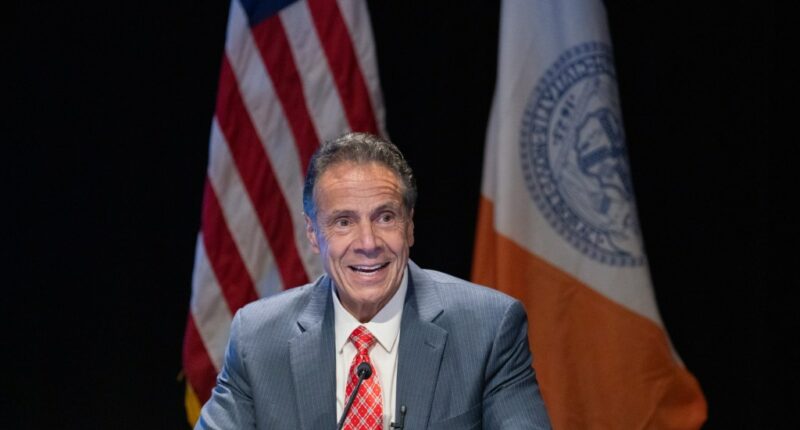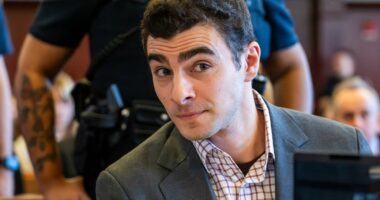Share this @internewscast.com

In the classic New York coming-of-age story, “A Bronx Tale,” the protagonist asks his hero whether it’s better to be loved or feared. His answer: “It is better to be feared, because fear lasts longer than love … it’s fear that keeps them loyal to me.”
For over fifty years, Andrew Cuomo’s “get along or kill” approach has been his defining characteristic, and it’s a significant reason he shouldn’t be considered for mayor.
I speak from experience, having served as a senior advisor during Cuomo’s gubernatorial campaigns in 2010 and 2014. I witnessed how his relentless pursuit of power for its own sake undermined his leadership abilities. Later, while working as a senior advisor at City Hall amid the pandemic, I saw firsthand how his personal grudges and petty disputes negatively impacted New Yorkers.
I’ve conversed with many former colleagues who worked under Cuomo and share similar sentiments, yet they remain silent due to fear of backlash. Although they harbor no affection for him, the threat of retribution keeps them from speaking out.
Cuomo asserts that his background equips him uniquely to tackle New York City’s challenges, but what has his experience truly meant for the city?
We are all familiar with the stories surrounding Cuomo: the bullying tactics, the toxic atmosphere in the workplace, the intimidating phone calls, and the erratic outbursts.
As governor, Cuomo accumulated significant power, and New Yorkers watched as that power led to his corruption. His rise to international fame during the COVID briefings only highlighted how unchecked power can corrupt absolutely.
Cuomo created an ethics commission to clean up Albany, but then disbanded it once it started to look into his own administration. A longtime Cuomo friend and advisor cut a deal with the Department of Justice, which uncovered years of graft and corruption. His top aide — whom he called his father’s third son — went to prison for accepting bribes. He directed close to $1 billion in tax breaks to Elon Musk.
Even at the height of the COVID crisis, the governor seemed more focused on settling political scores than protecting New Yorkers.
As the virus took hold in New York City, Mayor Bill de Blasio called for shelter-in-place to stop the spread. Cuomo ridiculed him and dismissed the idea, but several days later announced his own “New York State on Pause.” Cuomo’s delay most likely led to tens of thousands of avoidable COVID infections.
Cuomo made another catastrophic mistake sending seniors with COVID to die in nursing homes, and then tried to cover it up, even as he was getting a $5 million book deal. A bipartisan congressional panel — including Democrats — accused Cuomo of lying about his role in the cover up.
Cuomo barred state Health Department officials from working closely with their city counterparts and he even played politics with the state’s vaccine program, pushing county executives for pledges of political loyalty before distributing vaccines and blocking vaccine clinics from opening in certain districts out of political retribution. When NYC Health & Hospitals announced a mass vaccine site with the Mets at Citi Field, Cuomo privately threatened to withhold vaccines because the team’s management had accepted the invitation from City Hall before checking with the governor’s office.
When de Blasio reopened the public schools, the candidate who now claims to be a champion of mayoral control actively worked against the cohesive management of the public school system as part of his petty feud.
Those are just a few examples of Cuomo’s mismanagement — without even mentioning the sexual misconduct allegation that led him to resign in disgrace.
There are certainly reasons to fear Cuomo’s wrath. When his first sexual harassment survivor spoke out, he unleashed his political team to destroy her career. When other women bravely came forward, Cuomo fought them in court — even seeking their gynecological records.
But our politics doesn’t have to be this poisonous. Next month, New Yorkers get to decide between two very different visions for New York City.
One is centered on fear — the fear of American carnage that has come to define the Cuomo-Trump era of politics.
The other, led by Zohran Mamdani, is a vision for what’s possible when we don’t limit ourselves to the stale, broken ideas of the past. It’s a vision centered on love for our fellow New Yorkers, and a love for our city that is so clearly evident in the joy and energy Mamdani generates on the campaign trail.
So is it better to be loved or feared? For New Yorkers, the choice is clear.
Kauffmann is a Democratic strategist.

















